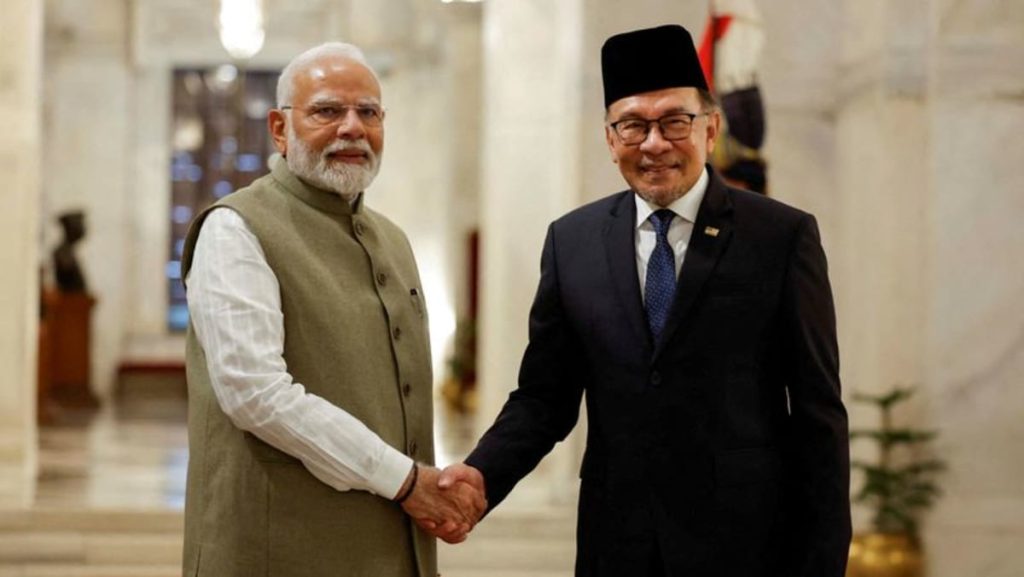Prime Minister Narendra Modi of India and Malaysian Prime Minister Anwar Ibrahim have agreed to enhance cooperation between their countries in various sectors such as semiconductors, financial technology, and defense production. This comes after a period of strained relations following comments made by Malaysia’s then-prime minister Mahathir Mohamad about India’s decision to revoke the autonomy of the Muslim-majority region of Kashmir. The tensions also led to a decrease in India’s purchases of Malaysian palm oil. In an effort to improve ties, the two leaders have decided to elevate their cooperation to the level of a ‘Comprehensive Strategic Partnership’.
Modi highlighted that Malaysia had invested US$5 billion in India in the past year, demonstrating a strong economic partnership between the two countries. He mentioned plans to increase cooperation in areas requiring advanced technology such as semiconductors, fintech, defense industry, AI, and quantum technology. Additionally, India and Malaysia have been conducting bilateral trade in their respective currencies, the rupee and ringgit, as part of efforts to reduce reliance on the US dollar. This move is seen as a step towards diversifying trade relationships and mitigating the impact of sanctions on countries like Russia.
Both leaders expressed their commitment to reinvigorating relations between India and Malaysia across various sectors. Anwar Ibrahim emphasized the need to explore further opportunities for collaboration, indicating a shared interest in expanding cooperation beyond existing areas. By working together in emerging fields such as semiconductor technology and artificial intelligence, the two countries aim to enhance their economic and technological capabilities. The decision to elevate their partnership to a higher level signifies a mutual desire to strengthen bilateral ties and foster greater cooperation in strategic areas of mutual interest.
India’s efforts to increase the acceptability of the rupee in international trade reflects a broader strategy to reduce its dependence on the US dollar and diversify its currency reserves. By conducting bilateral trade in local currencies, India and Malaysia are promoting financial cooperation and reducing exposure to currency fluctuations. Modi’s emphasis on areas such as fintech and quantum technology highlights the importance of technological innovation in shaping future economic relations between the two countries. This strategic shift towards collaboration in high-tech industries underscores the potential for India and Malaysia to leverage each other’s strengths and capabilities for mutual benefit.
The commitment to a ‘Comprehensive Strategic Partnership’ signals a broader framework for enhanced cooperation between India and Malaysia across multiple domains. By deepening their engagement in key sectors such as defense production and artificial intelligence, the two countries seek to build a stronger foundation for long-term collaboration. The decision to expand bilateral trade in rupee and ringgit currencies underscores a commitment to strengthening financial ties and fostering greater economic integration. With a shared focus on advancing technological capabilities and exploring new areas of cooperation, India and Malaysia are poised to elevate their partnership to new heights and unlock the full potential of their strategic relationship.


